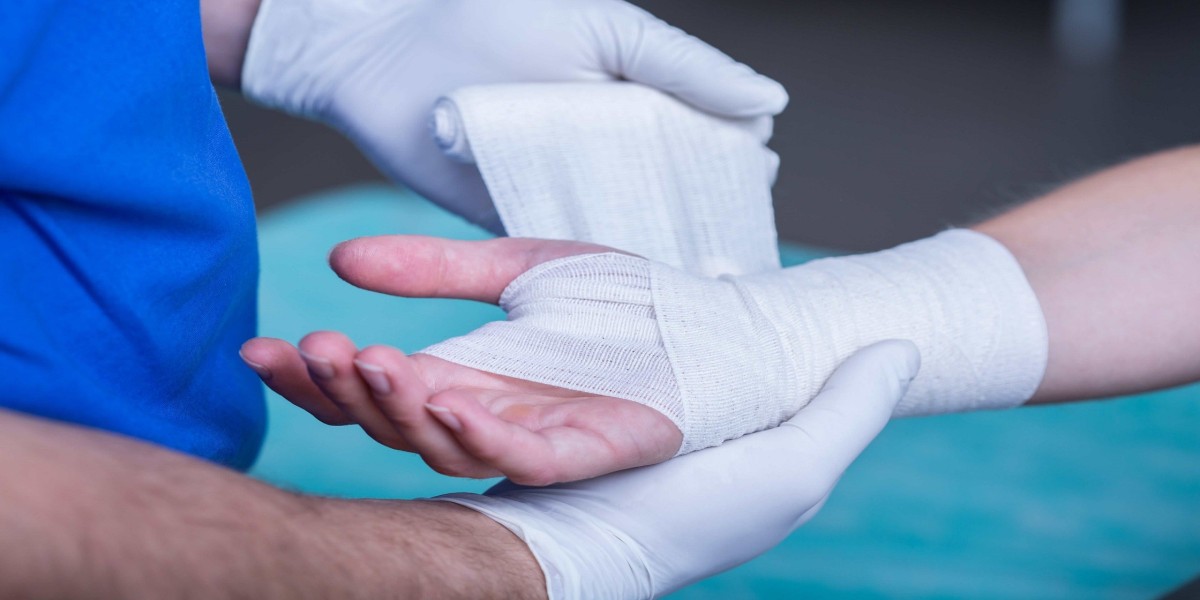Chronic wounds are a growing health concern, affecting millions of people worldwide. Unlike minor cuts and scrapes that heal on their own, chronic wounds take weeks or even months to recover, often leading to serious complications if left untreated. Conditions like diabetes, poor circulation, and infections can make wound healing even more challenging.
If you or a loved one is dealing with a non-healing wound, seeking the expertise of a wound care specialist is crucial. These professionals use advanced treatments to speed up healing, prevent infections, and improve overall health. In this blog, we’ll explore the causes of chronic wounds, the risks of ignoring them, and how a wound care specialist can provide effective treatment to restore your skin’s health.
What Are Chronic Wounds?
A chronic wound is any wound that doesn’t heal within the expected timeframe, typically four weeks or longer. Unlike acute wounds, which go through a natural healing process, chronic wounds get stuck in one phase of healing, leading to prolonged pain, inflammation, and tissue damage.
Common types of chronic wounds include:
- Diabetic Foot Ulcers – Open sores caused by poor circulation and nerve damage in diabetic patients.
- Venous Leg Ulcers – Wounds resulting from poor blood flow in the veins, leading to swelling and skin breakdown.
- Pressure Ulcers (Bedsores) – Skin damage caused by prolonged pressure, common in bedridden individuals.
- Non-Healing Surgical Wounds – Incisions that fail to heal properly due to infections or underlying conditions.
- Arterial Ulcers – Wounds caused by blocked arteries reducing blood supply to the extremities.
A wound care specialist is trained to diagnose the type of wound and develop a personalized treatment plan for faster healing.
Causes of Chronic Wounds
Several factors can contribute to slow wound healing, including:
- Diabetes – High blood sugar levels damage nerves and blood vessels, impairing wound repair.
- Poor Circulation – Reduced blood flow limits oxygen and nutrients needed for healing.
- Infections – Bacterial growth in the wound site can delay healing and cause complications.
- Excessive Pressure – Constant pressure on certain areas of the skin can lead to bedsores.
- Weak Immune System – Conditions like cancer, kidney disease, or autoimmune disorders can slow down healing.
A wound care specialist identifies these underlying issues and provides targeted treatments to address them.
Why You Shouldn’t Ignore a Chronic Wound
Ignoring a chronic wound can lead to severe complications, such as:
- Infections – Bacteria can enter the wound, leading to cellulitis or sepsis.
- Tissue Death (Necrosis) – Prolonged wounds can cause skin and muscle tissues to die.
- Limb Amputation – Severe wounds, especially in diabetic patients, may require limb removal.
- Reduced Mobility – Chronic wounds can make movement painful and limit daily activities.
- Long-Term Hospitalization – Delayed treatment may lead to extended hospital stays and costly medical bills.
Seeking help from a wound care specialist early can prevent these risks and promote effective healing.
How a Wound Care Specialist Treats Chronic Wounds
A wound care specialist follows a structured approach to ensure optimal healing:
1. Comprehensive Wound Assessment
- Evaluates wound depth, size, and severity.
- Identifies signs of infection or poor circulation.
- Determines the underlying cause of delayed healing.
2. Wound Cleaning and Debridement
- Removes dead or infected tissue to promote fresh cell growth.
- Uses specialized dressings to keep the wound clean and moist.
- Applies antibacterial solutions to prevent infections.
3. Advanced Wound Therapies
Depending on the wound type, a wound care specialist may use:
- Negative Pressure Wound Therapy (NPWT) – Uses suction to remove fluids and enhance healing.
- Hyperbaric Oxygen Therapy (HBOT) – Delivers high levels of oxygen to improve tissue repair.
- Skin Grafts and Artificial Skin Substitutes – Provides coverage for severe wounds.
- Bioengineered Tissue Therapy – Uses lab-grown skin cells to stimulate wound closure.
4. Infection Control and Pain Management
- Prescribes antibiotics if an infection is present.
- Uses pain-relief medications to improve patient comfort.
- Educates patients on proper wound care at home.
5. Personalized Treatment Plan
- Recommends lifestyle changes to boost healing.
- Provides physical therapy if mobility is affected.
- Schedules follow-up visits to monitor progress.
How Long Does It Take for a Chronic Wound to Heal?
Healing time depends on various factors, including the wound type, severity, and patient’s overall health. Here’s a general recovery timeline:
- Minor wounds: 1-2 weeks
- Diabetic ulcers: Several weeks to months
- Pressure ulcers: Weeks to months
- Surgical wounds: 2-4 weeks
- Venous ulcers: Several months
A wound care specialist will closely monitor your progress and adjust treatment as needed.
At-Home Tips to Support Wound Healing
While professional treatment is essential, you can also take steps at home to promote healing:
✔️ Keep the wound clean and dry.
✔️ Follow your specialist’s dressing change instructions.
✔️ Eat a protein-rich diet to support tissue repair.
✔️ Stay hydrated to improve circulation.
✔️ Manage underlying conditions like diabetes or high blood pressure.
✔️ Avoid smoking, as it slows down wound healing.
A wound care specialist will provide personalized advice based on your specific condition.
FAQs About Chronic Wound Care
Q1: Can chronic wounds heal on their own?
No, chronic wounds require medical intervention to heal properly. Without treatment, they may worsen and lead to complications.
Q2: What is the best treatment for chronic wounds?
The best treatment depends on the wound type. A wound care specialist may use debridement, specialized dressings, or advanced therapies to promote healing.
Q3: How can I prevent chronic wounds?
Managing underlying health conditions, maintaining good hygiene, and avoiding prolonged pressure on the skin can reduce the risk of chronic wounds.
Q4: Will my insurance cover wound care treatment?
Most insurance plans cover wound care services, especially for chronic or diabetic wounds. Check with your provider for specific coverage details.
Q5: When should I see a wound care specialist?
If your wound hasn’t healed within 2-3 weeks or shows signs of infection, schedule a consultation with a wound care specialist immediately.
Conclusion
Chronic wounds require specialized care to heal properly and prevent complications. A wound care specialist provides advanced treatments that promote faster recovery, reduce pain, and improve overall quality of life.








